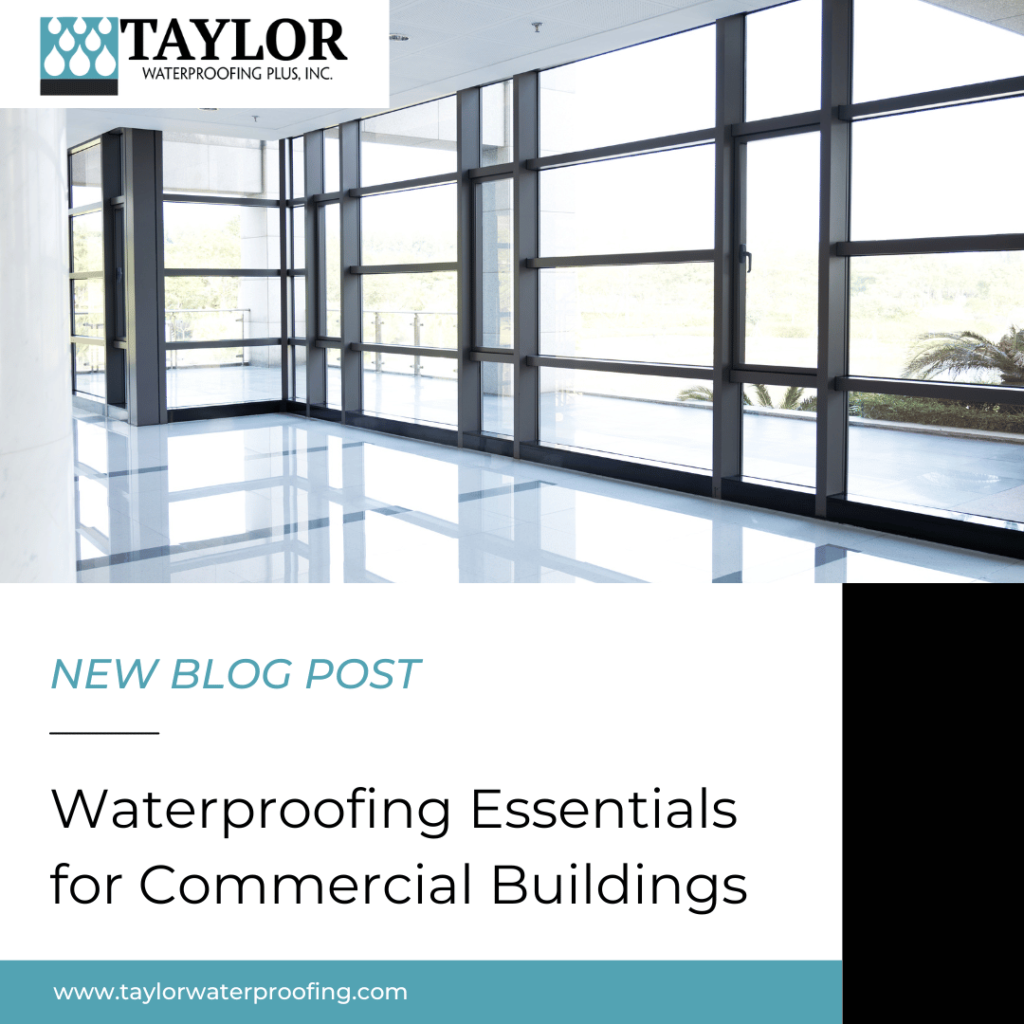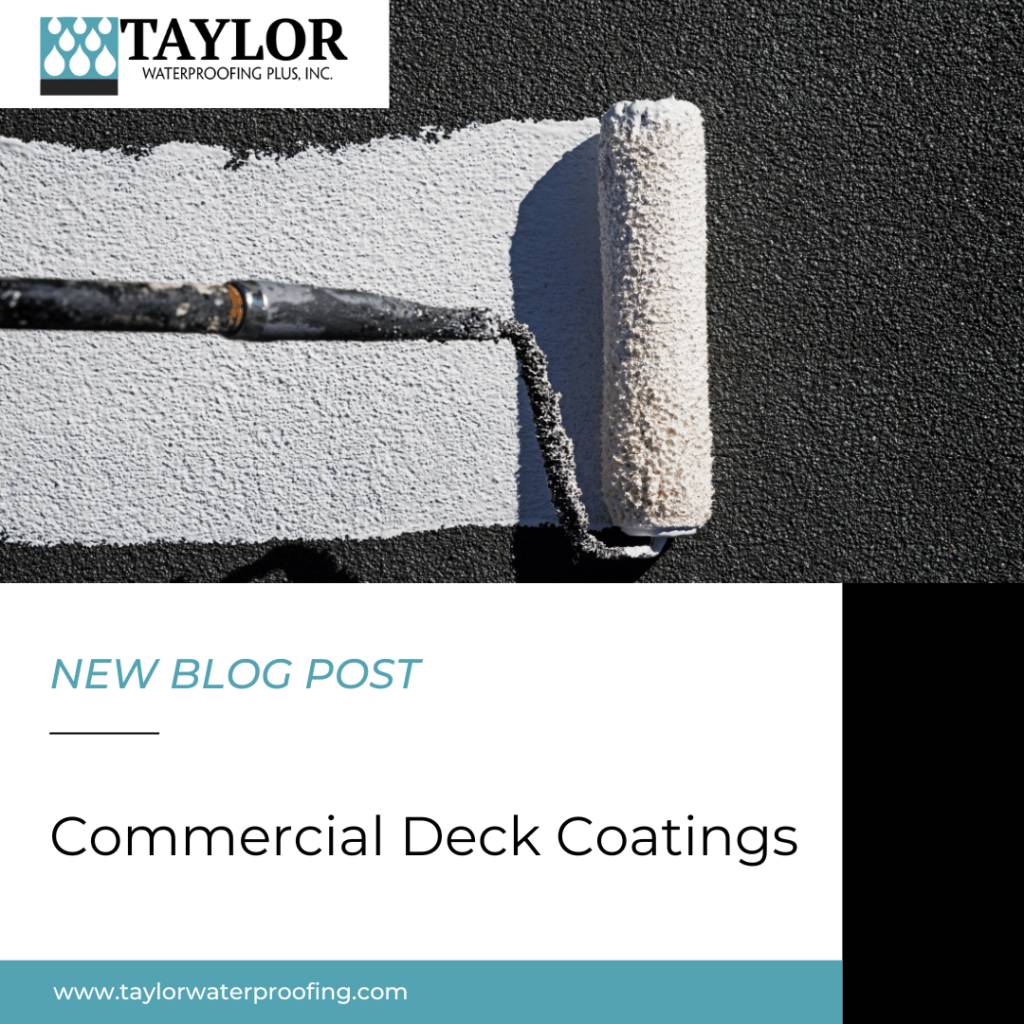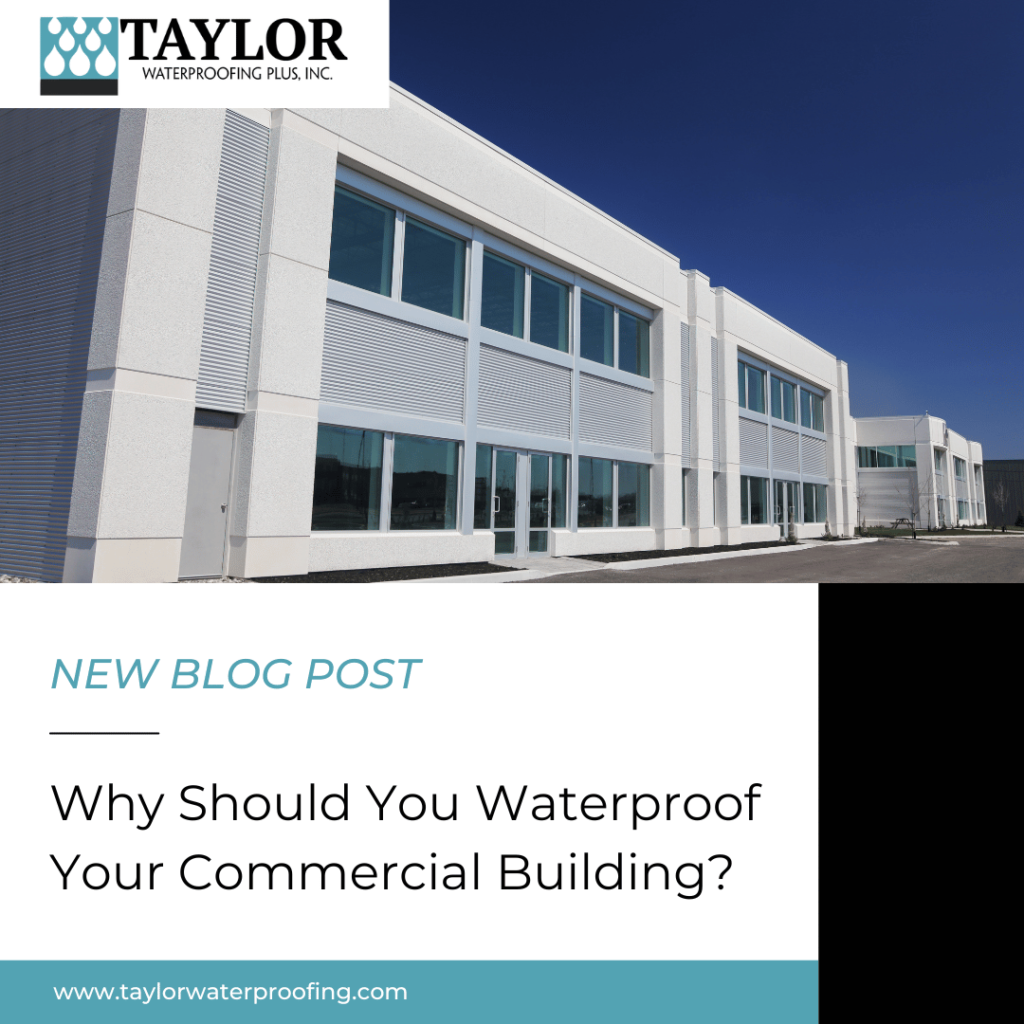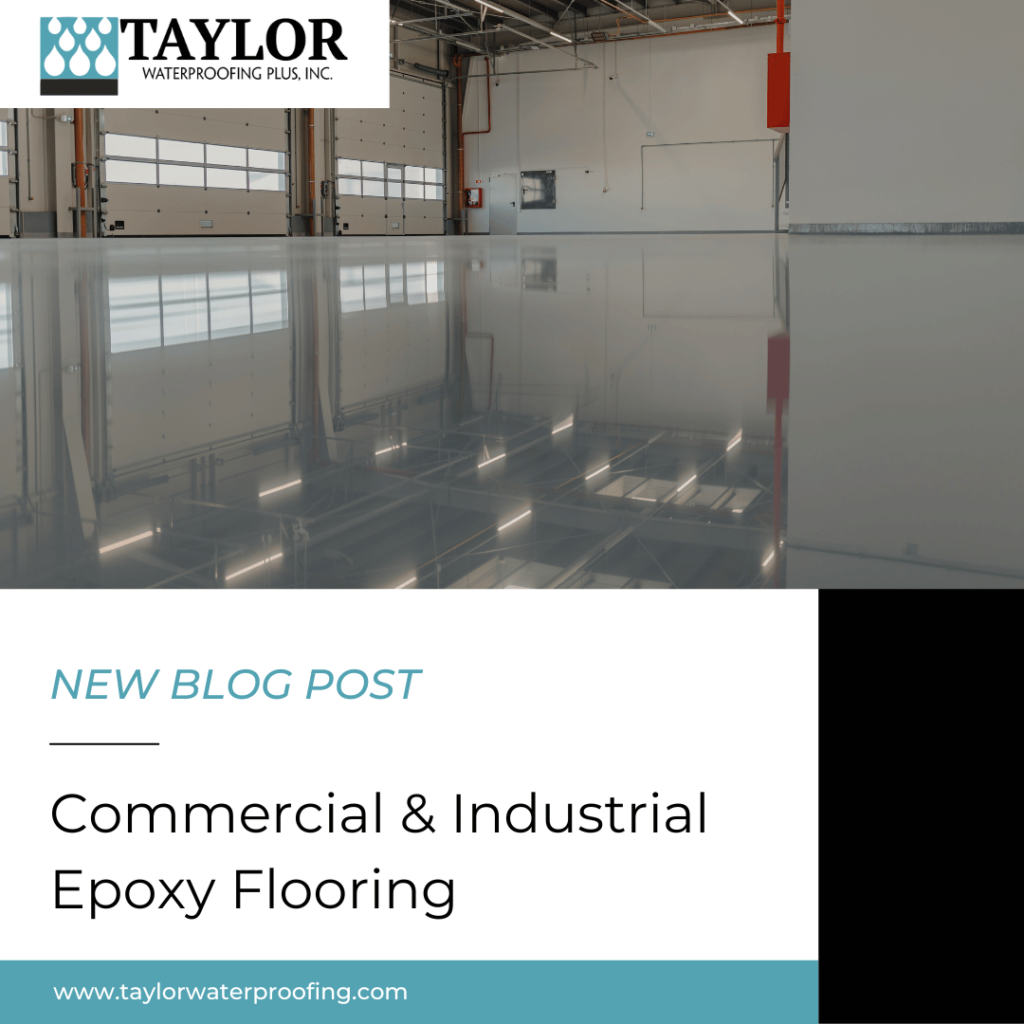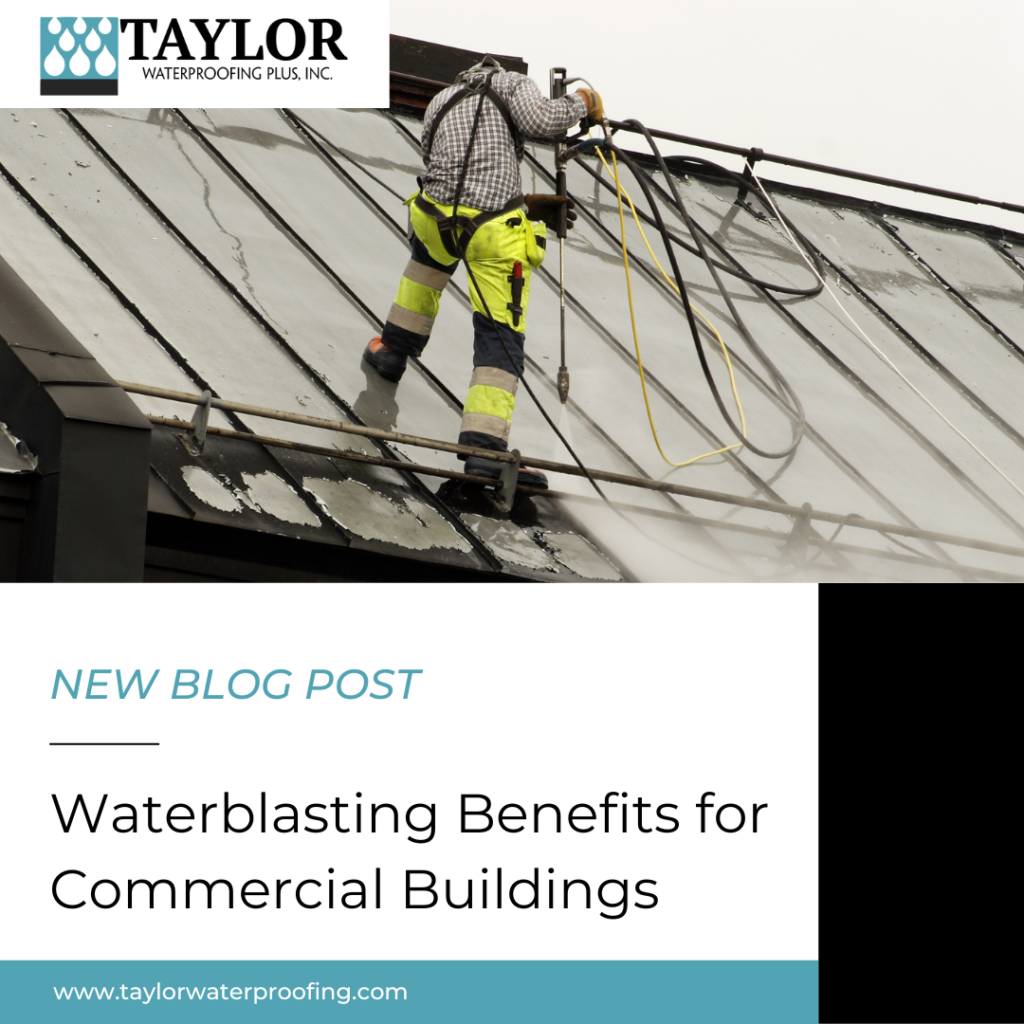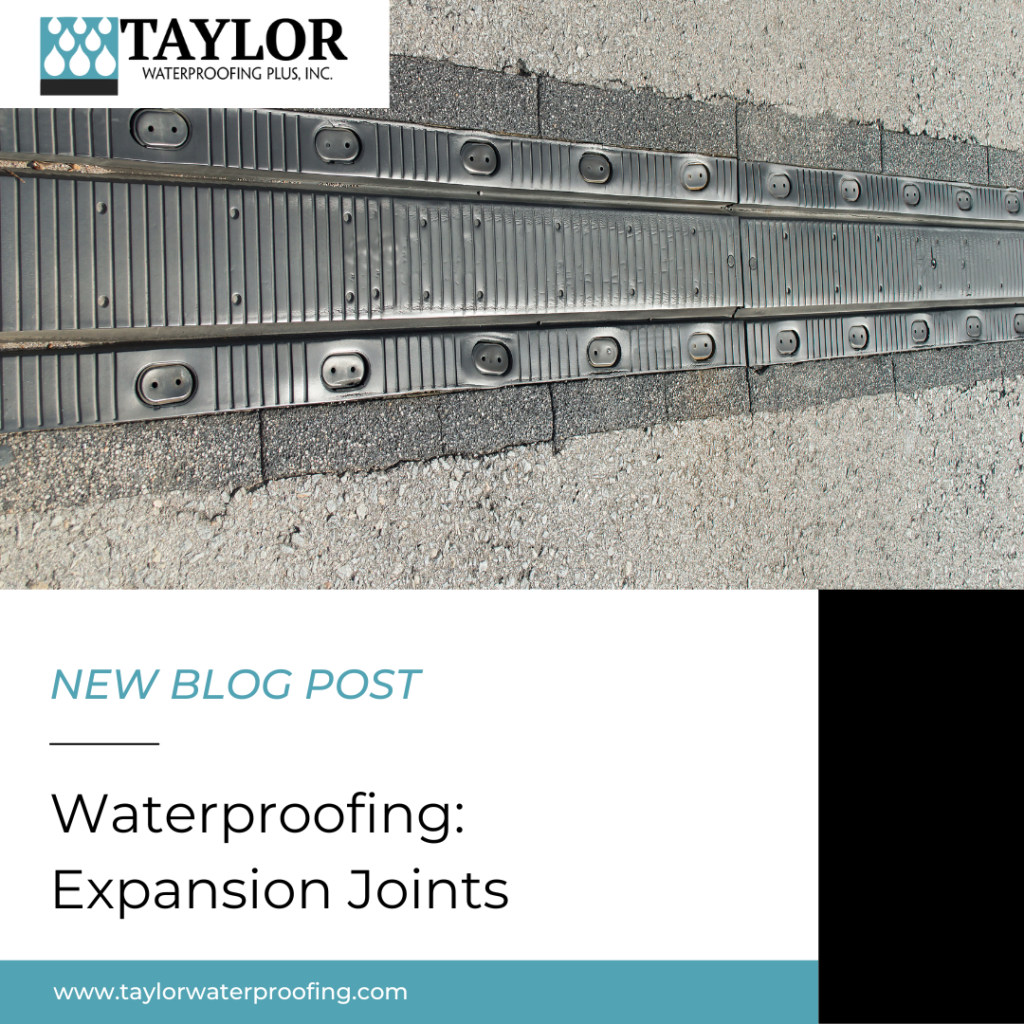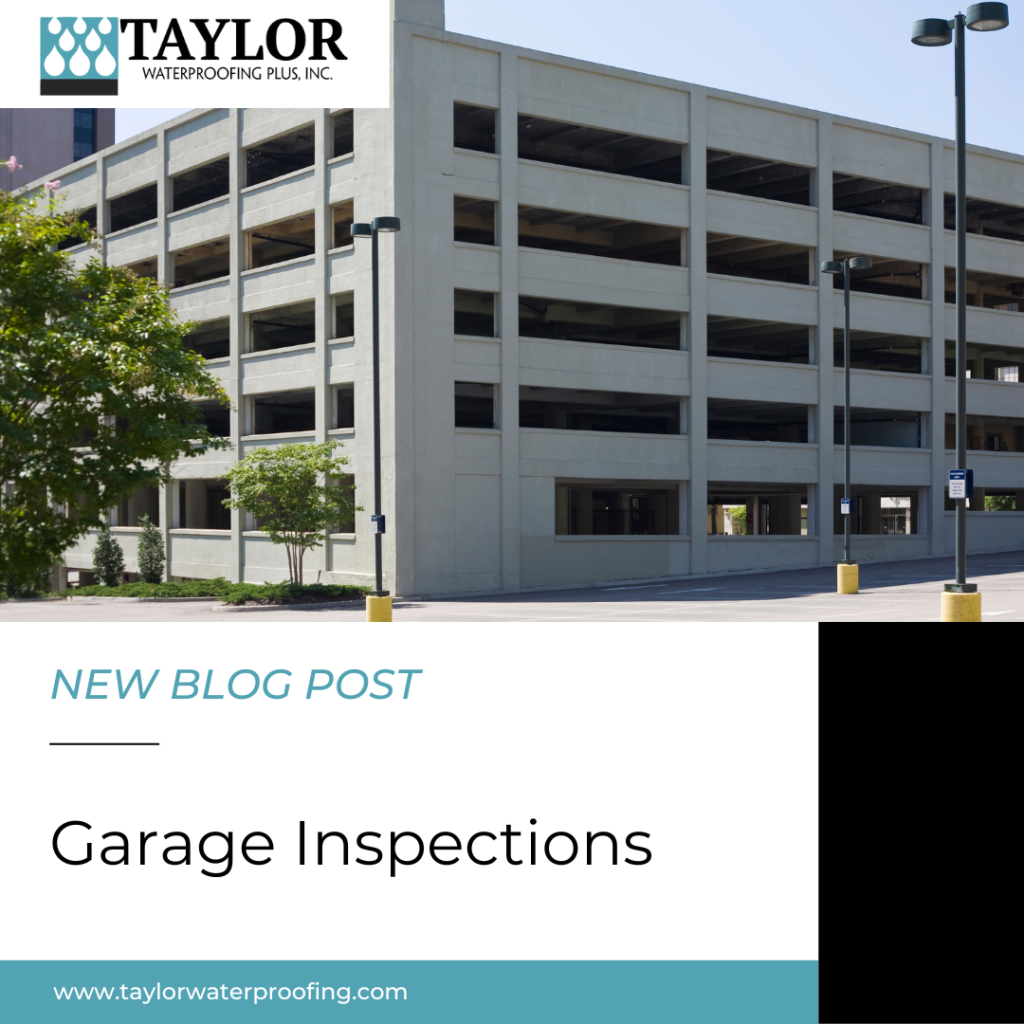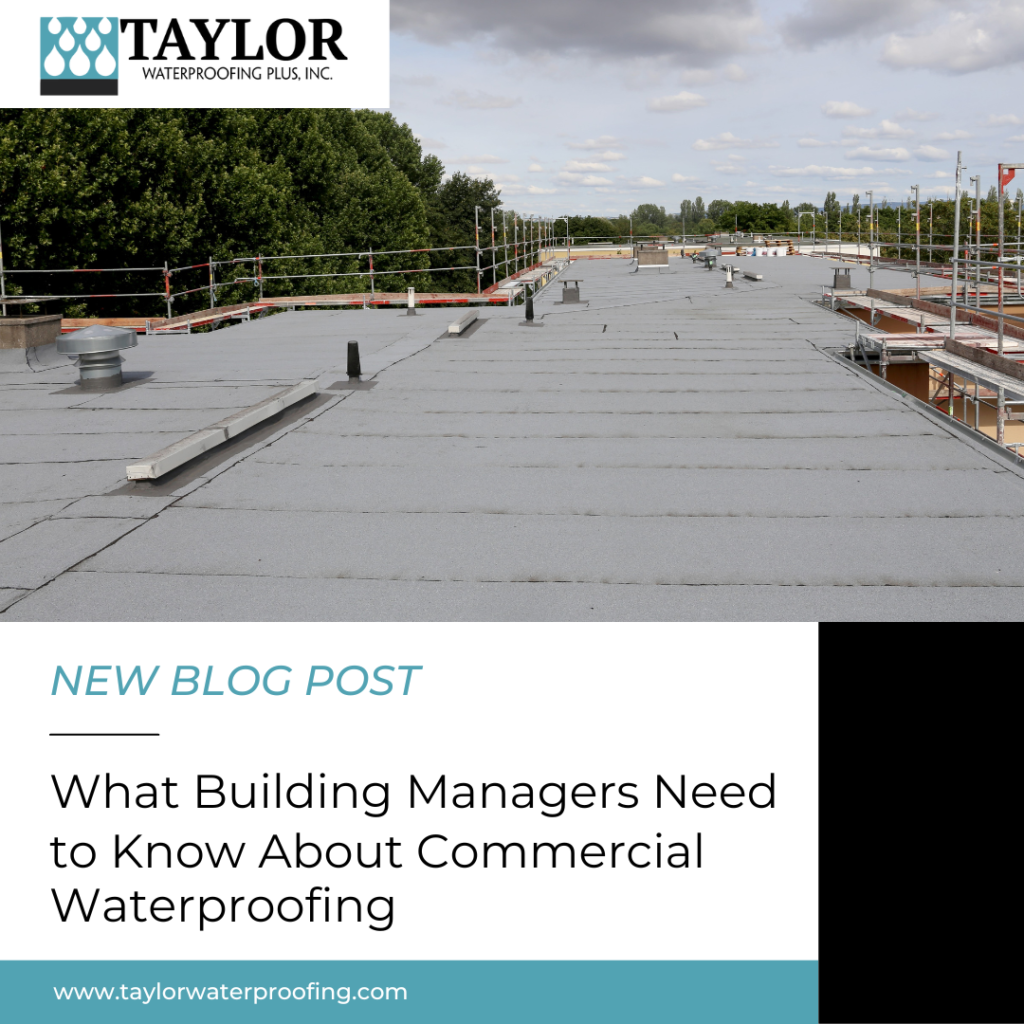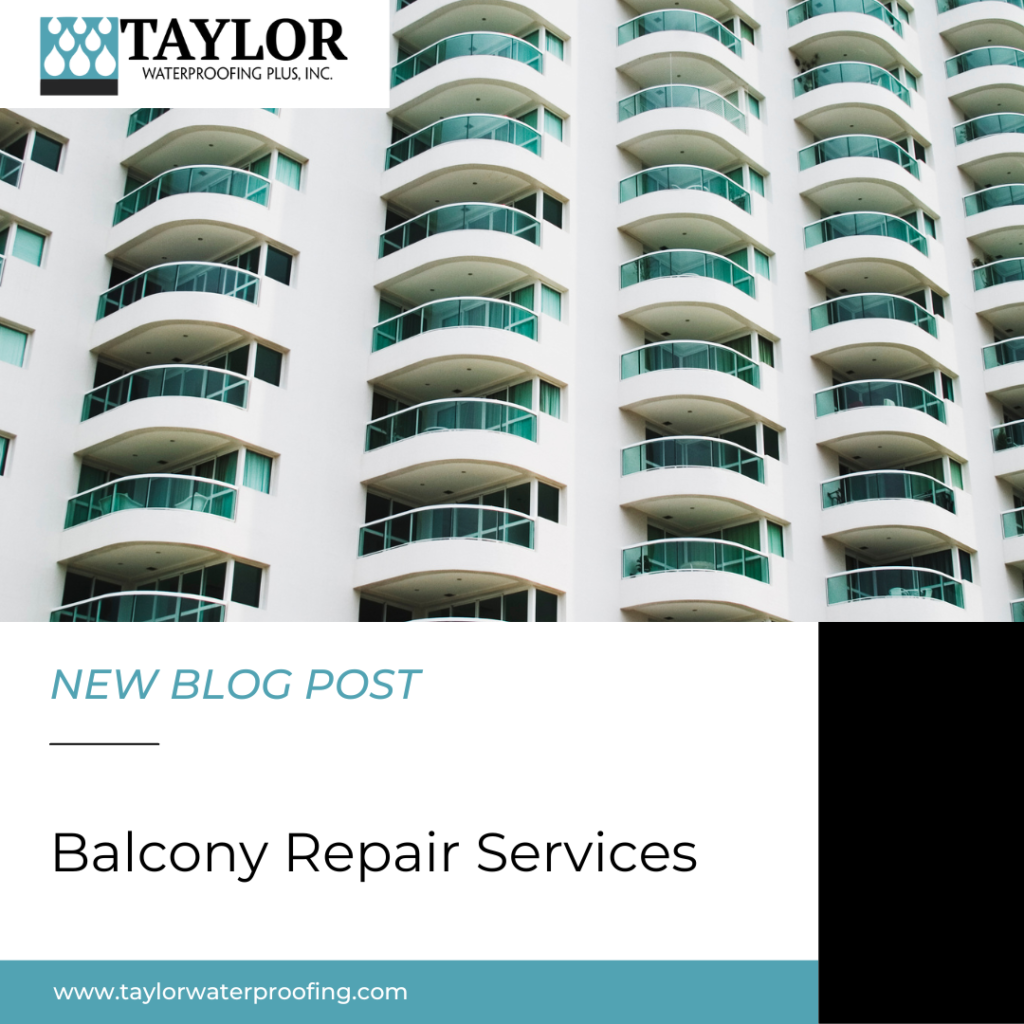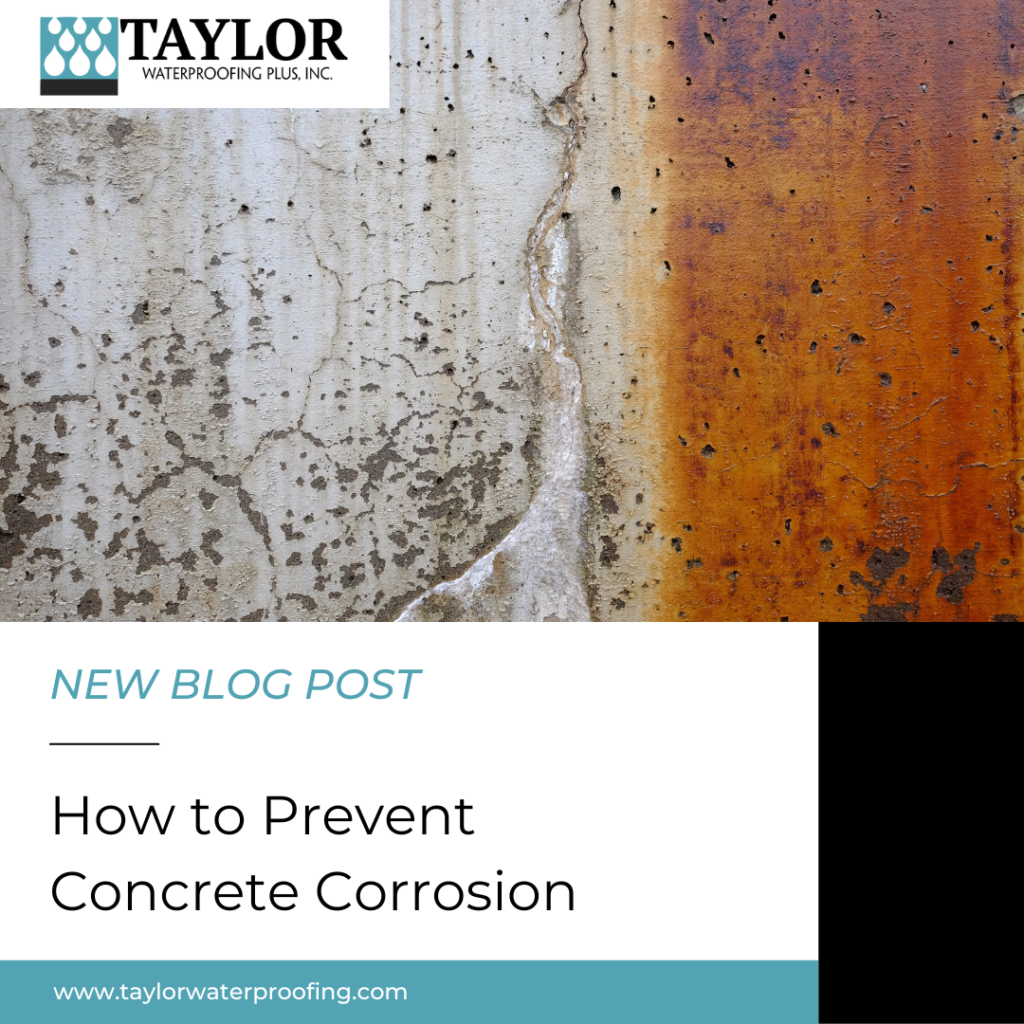The waterproofing essentials for commercial buildings will enable you to get ahead of the damage and issues that water infiltration can cause. Leaks and water intrusion can cause a host of problems such as mold growth, structural damage, pest issues, and stains and discoloration on walls and ceilings. By using sealants and coatings on your building’s surfaces with the proper waterproofing methods and techniques, you can mitigate these issues effectively and protect your commercial building.
Commercial Foundations
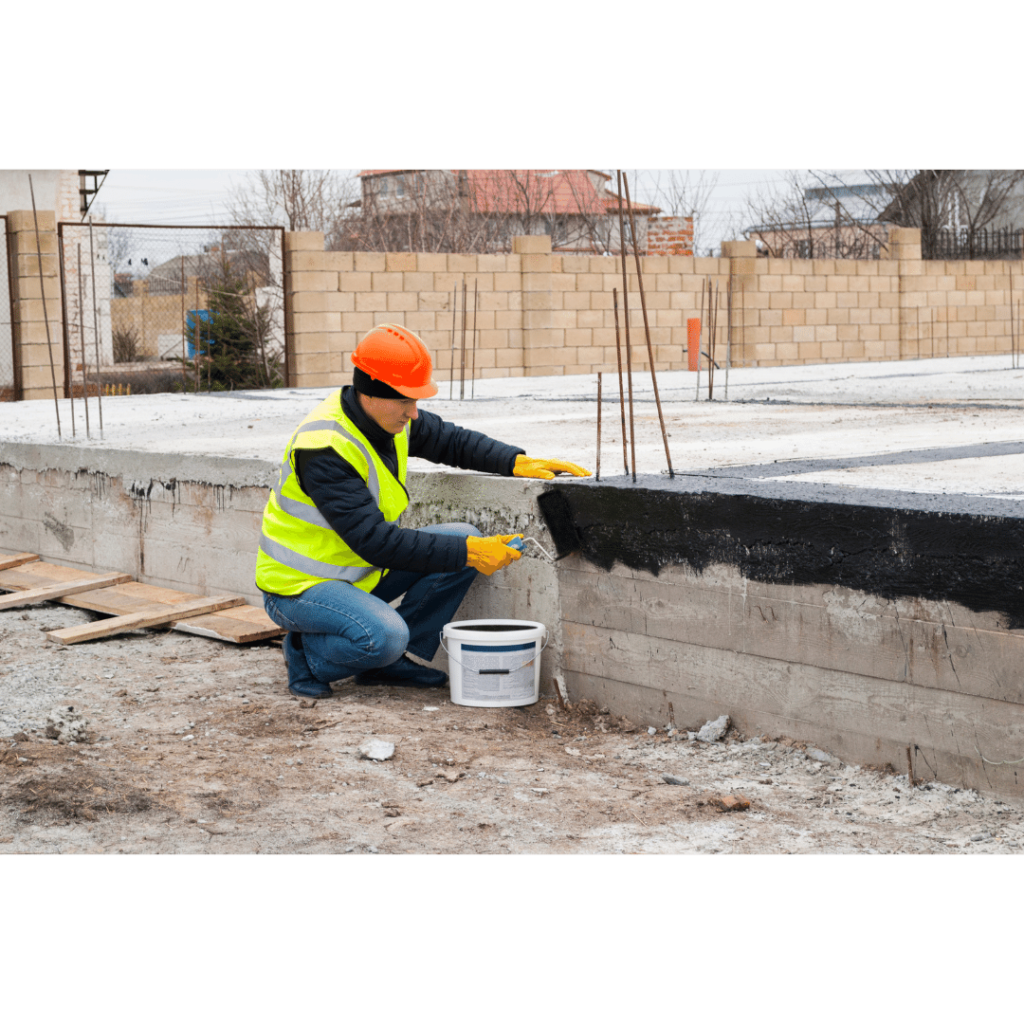
There are two ways to waterproof a commercial foundation; below-grade and negative-side. Below-grade waterproofing is the method that’s done during the construction of the building. This application creates a barrier between the foundation and the soil and earth around the building by applying a fluid-applied seamless membrane, sheet systems, or a combination. This system increases the longevity of the structure and prevents flooding.
Negative-side waterproofing addresses water infiltration from the inside by applying sealants or a waterproof membrane to the foundation’s walls and slab. This prevents water from entering the interior of your building.
Exterior Walls
Elastomeric coatings are made from epoxy, urethane, or silicone and create a moisture barrier for your building’s exterior walls. These coatings prevent your walls from corrosion and protect against chemicals and UV rays.
Commercial Windows
It is important to ensure that your windows are equipped with the proper flashing or waterproofing system. This will protect the window frame from water finding its way in through the seams. Wet glazing is a technique that is also commonly used in commercial applications due to the benefits it offers. This method creates a watertight seal that is highly weather-resistant and durable. Wet glazing is the process of applying a sealant around the perimeter of the glass panel, forming a bond between the glass and the frame.
Structural Concrete
Over time, structural concrete slabs can become vulnerable to water intrusion. Applying a sealant or coating to the slab creates a waterproof membrane and protects the concrete from corrosion, cracks, and water damage.
Our team of waterproofing professionals can help you navigate the waterproofing needs and the waterproofing essentials for commercial buildings. Contact us through our website here to learn more.


